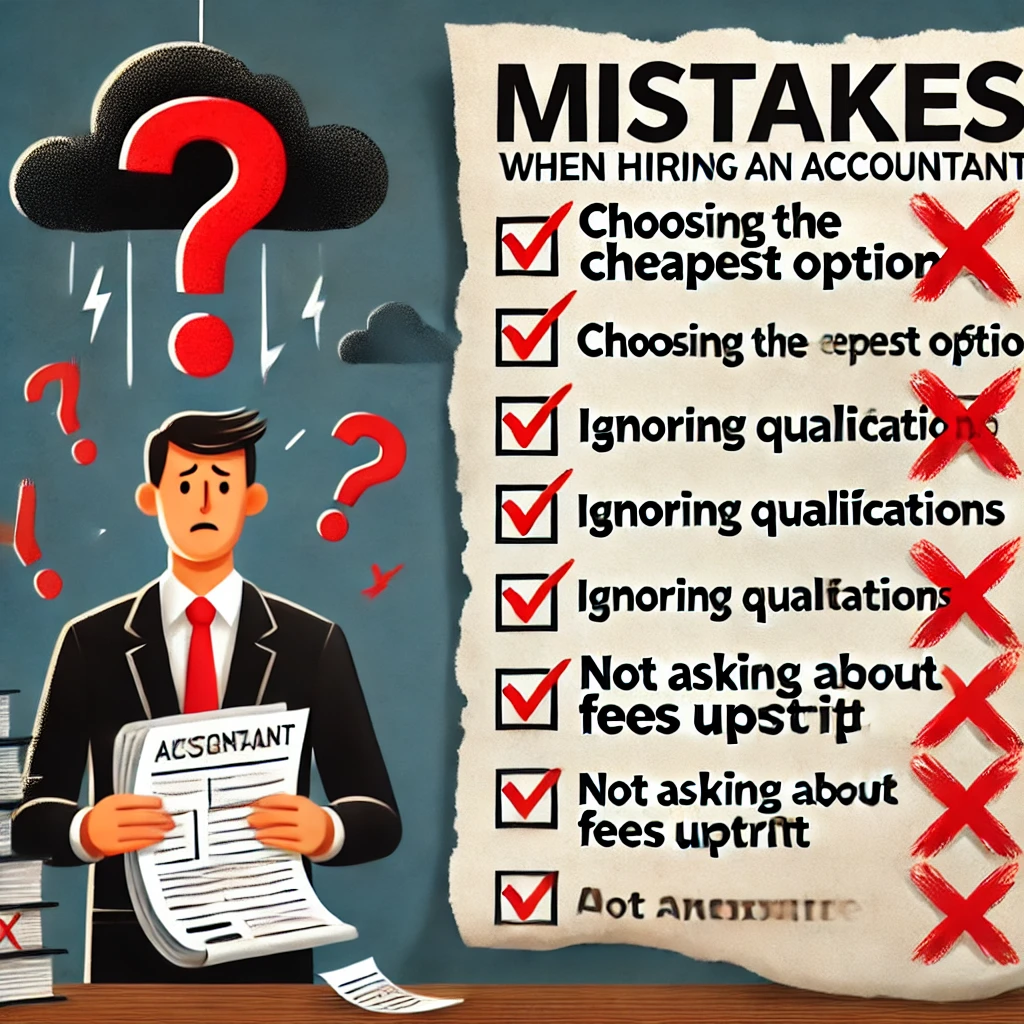Finding the right accountant for your small business isn’t just about crunching numbers—it’s about making sure your business stays profitable, compliant, and stress-free when tax season hits. A good accountant can save you thousands, while the wrong one? A total nightmare.
So, where do you even start? Do you really need an accountant, or can you just use software like Xero? Should you go for a local accountant or an online service? And how do you know if you’re getting ripped off?
This guide cuts through the confusion and walks you through exactly how to find the right accountant for your small business—without making costly mistakes. Let’s get into it. 🚀
Do You Need an Accountant for Your Small Business?
Let’s be real—not every small business needs an accountant from day one. But when tax time rolls around, or your business starts growing, you might suddenly wish you had one on speed dial.
So, do you actually need an accountant, or can you handle things yourself? Let’s break it down.
When You Definitely Need an Accountant
If any of these sound like you, it’s time to get an accountant—ASAP:
✔ Your business is growing fast – More revenue = more tax obligations. An accountant keeps you compliant and maximizes deductions.
✔ You’re making mistakes (or have no idea what you’re doing) – One wrong tax move and IRD could come knocking.
✔ You’re spending too much time on accounting – If you’re drowning in spreadsheets instead of running your business, it’s time to outsource.
✔ You need funding or loans – Banks and investors want to see proper financial statements. An accountant makes sure your numbers actually make sense.
✔ You want to pay less tax (legally) – Accountants know exactly how to reduce your tax bill while staying compliant.
When You Might Be Okay Without One
If your business is still small and simple, you might be able to manage things yourself—at least for now.
❌ You’re a sole trader with basic income & expenses – If your finances are straightforward, software like Xero or MYOB might be enough.
❌ You understand basic tax rules – If you’re confident in handling GST, income tax, and IRD payments, you might not need an accountant yet.
❌ You’re okay with DIY tax filing – If you’re comfortable filing your own returns and keeping track of receipts, you could save money (but make sure you’re doing it right).
Hiring vs. DIY: What’s Best for You?
| Scenario | Hire an Accountant | Do It Yourself |
|---|---|---|
| You have employees or contractors | ✅ Yes | ❌ No |
| You need help reducing your tax bill | ✅ Yes | ❌ No |
| You have complex expenses or revenue sources | ✅ Yes | ❌ No |
| You’re a sole trader with minimal transactions | ❌ Not necessary | ✅ Yes |
| You use accounting software and understand tax rules | ❌ Maybe later | ✅ Yes |

💡 Pro Tip: Even if you start with DIY accounting, consulting an accountant once a year can help you avoid costly mistakes.
Not sure what’s best for you? Get in touch with BH Accounting, and we’ll help you figure out whether you need an accountant (and if so, we’ll match you with the right one). 🚀
Key Factors to Consider When Choosing an Accountant
Finding the right accountant isn’t just about picking the first name you see on Google. Not all accountants are created equal, and the wrong one can cost you more than just money—it can mean missed tax deductions, compliance headaches, and wasted time.
Before you hire, here are the key things to consider to make sure you’re getting an accountant who actually understands your business and helps it grow.
Look for Industry-Specific Experience
💡 Not all businesses are the same—your accountant should understand yours.
An accountant who specializes in e-commerce businesses may not be the best fit for a construction company or freelancer. You want someone who knows:
✔️ The common tax deductions in your industry.
✔️ The typical cash flow challenges businesses like yours face.
✔️ Industry-specific compliance rules (because mistakes here = IRD trouble).
How to find the right fit:
👉 Ask them: “Do you have experience working with businesses like mine?”
👉 If you’re a startup or sole trader, find someone who works with small businesses, not just large corporations.

Choose a Chartered or Certified Accountant
📢 Anyone can call themselves an “accountant”—but not all are qualified.
If you’re trusting someone with your business finances, make sure they have actual credentials. In New Zealand, look for:
✅ CA (Chartered Accountant) or CPA (Certified Public Accountant) – These accountants are registered with professional bodies and held to strict standards.
✅ Tax Agent Registration – Check if they’re registered with Inland Revenue (IRD) as an official tax agent.
✅ Specialist Certifications – Some accountants specialize in GST, business advisory, or international tax—perfect if your business needs extra expertise.
💡 Pro Tip: A qualified accountant will not only keep you compliant but can also legally minimize your tax bill—which means more money in your pocket.
Consider Location vs. Online Accounting Services
🔎 Do you need an accountant near you, or is an online service just as good?
In the past, most businesses worked with local accountants. But today, cloud-based accounting means location matters less.
Local Accountant (Best if you prefer face-to-face meetings)
✔ In-person consultations & support
✔ Local knowledge of business regulations
✔ Good if you want hands-on guidance
Online Accountant (Best if you want flexibility & lower costs)
✔ No need to travel—everything is digital
✔ Often cheaper than traditional firms
✔ Access to a wider range of specialists
💡 Not sure? If your business has complex financial needs, a local accountant may be better. But if you just need basic tax filing and bookkeeping, an online accountant can save you time and money.
Make Sure They Use the Right Accounting Software
🚀 Cloud accounting is the future—your accountant should be on board.
Your accountant should work with modern accounting software that integrates with your business tools. Look for:
✔️ Xero – The most popular choice in New Zealand (great for small businesses).
✔️ MYOB – Ideal for payroll-heavy businesses.
✔️ QuickBooks – A solid option for freelancers & startups.
Why does this matter?
✅ Easy collaboration – You and your accountant can access the same financial data in real-time.
✅ Faster tax filing – No need to manually send invoices and expenses—it’s all synced.
✅ Less admin for you – Automated reports, payroll, and GST filing save hours of work.
💡 Pro Tip: Before hiring, ask: “Which accounting software do you use, and will I have access to it?” If they only work with outdated systems, that’s a red flag.
Looking for an accountant who actually understands your business? Let BH Accounting connect you with the right expert to keep your finances on track and stress-free. 🚀

Where to Find the Best Accountant for Your Small Business
Now that you know what to look for in an accountant, the next question is: where do you actually find one?
Google searches can only take you so far—you want someone trustworthy, experienced, and the right fit for your business. The best way to find them? Use your network, check reliable directories, and interview multiple candidates. Here’s how.
Ask for Referrals & Tap into Your Network
📢 Word-of-mouth is still one of the best ways to find a great accountant.
Before you start cold-searching online, ask people you trust if they have an accountant they recommend.
✔ Talk to other small business owners – They’ve been in your shoes and can tell you if their accountant is worth it.
✔ Ask your lawyer, banker, or financial advisor – They often work closely with accountants and can recommend good ones.
✔ Post in business groups & forums – Facebook groups, LinkedIn communities, and local business networks are goldmines for recommendations.
💡 Pro Tip: When asking for referrals, don’t just ask “Do you like your accountant?” Instead, ask:
👉 “What does your accountant do well?”
👉 “Are they proactive, or do you have to chase them for answers?”
👉 “How much do they charge, and are there any hidden fees?”
This will help you filter out average accountants and find the real pros.
Use Online Directories & Business Associations
If you’re coming up short on referrals, online directories and official business associations can help you find vetted professionals.
✅ Chartered Accountants Australia & New Zealand (CA ANZ) – Find qualified, accredited accountants in your area.
✅ Xero Advisor Directory – Search for accountants who specialize in Xero and cloud-based accounting.
✅ IRD-Registered Tax Agents – The New Zealand IRD website has a list of registered tax professionals.
✅ Local Chamber of Commerce – Many accountants are members of business organizations—check their directories.
💡 Pro Tip: When searching directories, look for reviews and testimonials. A long list of credentials is great, but client feedback tells you if they’re actually good at their job.
Interview Multiple Accountants Before Choosing One
📢 Don’t just hire the first accountant you talk to. Meet with at least two or three before making a decision.
When interviewing potential accountants, ask questions like:
✔️ Do you specialize in small businesses like mine?
✔️ What tax strategies do you recommend for my business?
✔️ How do you charge—flat fee or hourly? Are there extra costs I should know about?
✔️ What accounting software do you use, and will I have access to it?
✔️ Will I be working directly with you, or with someone on your team?
💡 Pro Tip: A good accountant should be able to explain things clearly in a way that makes sense. If they speak in complicated jargon or avoid answering your questions, that’s a red flag.
Want to skip the search? Let BH Accounting connect you with an expert who fits your business needs perfectly. 🚀
Avoid These Common Mistakes When Hiring an Accountant
Hiring an accountant should make your life easier, not harder—but pick the wrong one, and you could end up overpaying, missing tax savings, or even facing IRD penalties. Many small business owners rush the process or focus only on price, which can be a costly mistake.

To make sure you don’t regret your choice, here are the biggest mistakes to avoid when hiring an accountant 🚨.
- Choosing the Cheapest Option – A low-cost accountant might seem like a bargain, but they could lack experience, miss deductions, or charge hidden fees later.
- Not Checking for Industry Experience – Every industry has different tax rules. If your accountant doesn’t understand your business type, you could be missing out on key deductions.
- Ignoring Qualifications – Anyone can call themselves an accountant. Always check if they are a:
- Chartered Accountant (CA)
- Certified Public Accountant (CPA)
- Registered Tax Agent with IRD
- Not Asking About Fees Upfront – Some accountants charge extra for GST filing, payroll, or business advice. Always ask for a clear breakdown of costs before signing any contract.
- Hiring an Accountant Who Only Does Taxes – A great accountant does more than just file tax returns. They should help you reduce tax, manage cash flow, and plan for growth.
- Not Checking What Software They Use – If your accountant isn’t using modern cloud-based accounting tools like Xero, MYOB, or QuickBooks, you could end up doing more work than necessary.
- Ignoring Communication & Availability – Some accountants go quiet after tax season. Make sure yours is available year-round for financial advice and urgent questions.
- Skipping Background Checks & Reviews – Always:
- Read online reviews and testimonials.
- Ask for referrals from other business owners.
- Check their track record with previous clients.
Hiring the wrong accountant can cost you more in the long run. Take your time, do your research, and choose wisely.
💡 Need help finding the right accountant? Let BH Accounting connect you with a trusted expert who fits your business perfectly. 🚀
